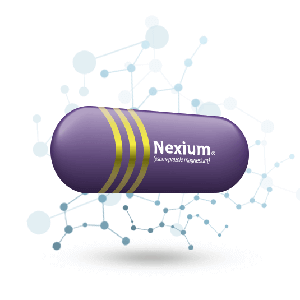PPI Settlement & Financial Compensation Information
 Several lawsuits filed against proton pump inhibitor drug makers have already produced an out-of-court PPI settlement, been ruled on by juries or are still pending. Below, we review recent PPI settlement history and the allegations that drove them.
Several lawsuits filed against proton pump inhibitor drug makers have already produced an out-of-court PPI settlement, been ruled on by juries or are still pending. Below, we review recent PPI settlement history and the allegations that drove them.
PPI Lawsuits Filed Against AstraZeneca
AstraZeneca, maker of Prilosec® (omeprazole) as well as Nexium® (esomeprazole), has faced a variety of lawsuits since 2004. To date, these allegations include:
- False advertising
- Failure to disclose an association between long-term PPI use and increased risk of kidney disease, heart attacks, bone fractures, Clostridium Difficile-associated diarrhea (CDAD) as well as dementia
Plaintiffs filed 55 different lawsuits against AstraZeneca, alleging long-term PPI caused bone fractures. In those particular cases, juries ruled for the defense. Since they couldn’t prove a direct causal link between bone fractures and PPIs, no plaintiff won a PPI settlement. However, other plaintiffs say PPIs caused chronic kidney disease, acute interstitial nephritis and renal failure.
AstraZeneca PPI Settlement History
In 2013, AtraZeneca settled one Massachusetts class action lawsuit before trial. In Commonwealth Care Alliance, et al. v. AstraZeneca Pharmaceuticals L.P., et al., plaintiffs say AstraZeneca deceptively marketed Nexium as a superior acid reflux treatment. For this reason, consumers paid nearly 8x more instead of using the cheaper, equally effective generic version. To avoid trial, AstraZeneca eventually paid $20 million to plaintiffs who purchased Nexium between March 1, 2001 and February 6, 2013.
During 2015, AstraZeneca settled another lawsuit for allegedly participating in a kickback scheme with Medco Health Solution. Lawyers say this was in order to maintain PPI drug Nexium’s “sole and exclusive status” within Medco’s formularies and marketing. Once again, the Justice Department alleged that AstraZeneca violated the False Claims Act. Rather than face trial, AstraZeneca quickly settled for $7.9 million.
Pfizer, Inc. Lawsuits and PPI Settlement History
At first, Protonix gained limited FDA approval only for treating erosive esophagitis caused by gastroesophageal reflux disease diagnosed exclusively via endoscopy. However, Wyeth’s sales and marketing team (purchased by Pfizer, Inc. for $68 billion in 2009) promoted Protonix as a “safe and effective treatment” for all forms of GERD. This allegedly misleading promotional tactic led the U.S. Justice Department to file a lawsuit accusing the drug maker of trying to “cheat the system.” In this case, Wyeth allegedly engaged in unlawful marketing tactics designed “to drive off-label use of the drug.” Specifically, Wyeth’s sales team made efficacy claims that were unsupported by clinical evidence. As an example, one promotional statement called Protonix “the best PPI for nighttime heartburn.” As a result, Pfizer, Inc. paid $55 million (plus interest) to avoid trial in 2013.
In February 2016, Pfizer settled a second Protonix lawsuit for $785 million. The U.S. Department of Justice alleged that prior to the 2009 company merger, Wyeth allegedly engaged in healthcare fraud. The company allegedly bundled two PPIs, Protonix Oral and Protonix I.V., for discounted sales to private purchasers from 2001 to 2006. During that same period, the company charged Medicaid providers full price. U.S. Attorney Carmen M. Ortiz said that the law requires pharmaceutical companies to provide identical discounts for private and Medicaid health care providers. Therefore, Wyeth’s behavior amounted to a “pricing scheme” and violated the False Claims Act.
Other PPI Drug Makers & Claims Still Pending
Many PPI patients now have claims pending against the following companies:
- Takeda Pharmaceuticals USA (manufactures Dexilant/dexlansoprazole, Prevacid/lansoprazole and Actos/pioglitazone)
- Bayer and Salix (manufactures Zegerid/omeprazole and sodium bicarbonate)
- Eisai (manufactures AcipHex/rabeprazole)
- Proctor & Gamble (manufactures Prilosec OTC)
As studies identify more severe long-term complications, such as stomach cancer, more consumers may seek justice and compensation through a PPI lawsuit. If you or a loved one suffered serious side effects while taking PPIs (including omeprazole, esomeprazole, lansoprazole, pantoprazole, rabeprazole as well as dexlansoprazole), you may have an eligible claim.
To see within minutes if you may qualify for a cash settlement, click the button below to start your free case review now.
Check your eligibility for compensation.
If you or a loved one has suffered from serious complications after taking Nexium, Prilosec or another PPI medication, you may be entitled to compensation from the manufacturer. Request your free case evaluation now to see if you may qualify.
Lori Polemenakos is Director of Consumer Content and SEO strategist for LeadingResponse, a legal marketing company. An award-winning journalist, writer and editor based in Dallas, Texas, she's produced articles for major brands such as Match.com, Yahoo!, MSN, AOL, Xfinity, Mail.com, and edited several published books. Since 2016, she's published hundreds of articles about Social Security disability, workers' compensation, veterans' benefits, personal injury, mass tort, auto accident claims, bankruptcy, employment law and other related legal issues.




